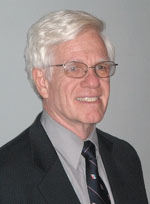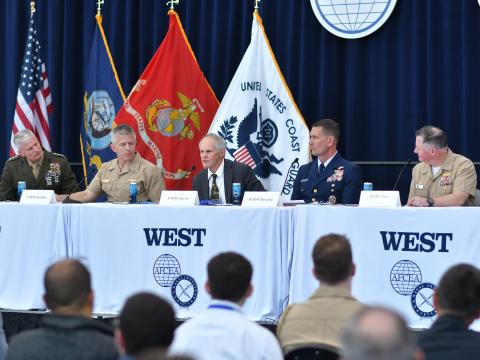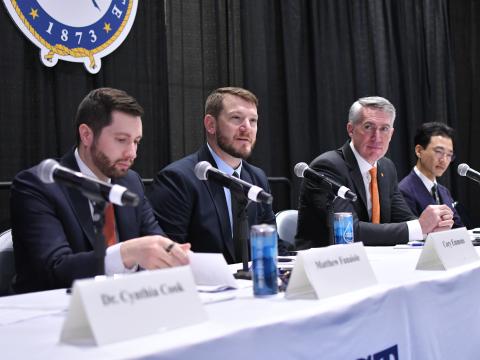Maneuver in the Global Commons—The Cyber Dimension
 |
Today’s world is less a condition of war/nonwar than it is a complex mix of simultaneous collaboration, competition and conflict. Within this scenario, operations occur continuously across the interconnected domains of the global commons: international waters and airspace, space and cyberspace. Both the OODA loop and maneuver concepts can help forces be more effective in these environments.
Maneuver in the commons does not mean just the spatial movement of forces. In the words of U.S. Marine Corps doctrine, “ … we must consider maneuver in other dimensions as well. The essence of maneuver is taking action to generate and exploit some form of advantage over the enemy… . That advantage may be psychological, technological or temporal as well as spatial. Especially important is maneuver in time—we generate a faster operating tempo than the enemy… .”
Beyond the physical element of warfare, Col. Boyd also wrote of moral—destroying an enemy’s will to win—and mental—distorting an enemy’s perception of reality—elements. The Marine Corps doctrine addresses psychological, technological and temporal advantages. Outside of military applications, the OODA loop also applies in diverse areas such as information, diplomacy, legal, intelligence, finance and economics. Its rapid execution is key to the adaptation, and thus to the survival, of virtually all organizations.
Given these complexities, how can we maneuver faster, and more effectively, than our opponents through the interacting environments of the global commons?
Each domain of the global commons has unique characteristics. Activities at sea, in the air, in space and in cyberspace typically have different response times, predictability, persistence and immunity from sovereign restrictions. They each are important, and much can be written about them. Cyberspace actions may have global effects, affecting the mental, moral and physical components of competition directly at a distance. Clearly, cyber activities can affect perceptions (mental). Physical damage to infrastructure nodes is possible. If we are entering an era in which whole-of-society measures may be engaged to undercut an opponent’s will to win (moral), the cyber dimension likely will grow in importance.
A key characteristic of the global commons OODA loop is that the observation and orientation segments rarely will be based on local input drawn directly from human senses. They will involve input from complex mixes of dispersed sensors linked by sophisticated correlation systems. To win the OODA loop competition, the input must be integrated and acted on quickly. It is not enough just to be fast and effective—the goal is to adapt quickly enough to destroy an enemy’s confidence in its ability to control the conflict.
Large organizations of any stripe will have many levels of OODA loops—tactical, operational and strategic. Col. Boyd postulated that effective organizations also would have highly decentralized chains of command with distributed decision-making concepts.
Victory in competitive decision cycles requires one side to understand what is happening and act faster than the other. A culture that encourages initiative and decentralization should have an advantage in this environment. At the same time, activities in cyberspace increasingly will affect the other domains of the global commons and outpace them. Cyber maneuvers may happen in “machine time” and may be neither readily observable nor attributable.
The tyranny of computing cycles means that important actions will have to be pre-approved—rules of cyber engagement—and that at least some of the decision making will have to be decentralized.
The paradox in a cyber environment is that there will be growing pressure to centralize and reduce freedom of action by subordinates. These pressures include the global nature of the threat, the ability to communicate and exercise control from senior levels directly to all echelons, the magnitude of the stakes in a cyber conflict, and uncertain collateral effects of cyber activities. These elements conflict directly with forces that call for increased latitude and initiative at lower levels.
The expertise of AFCEANs is needed all these areas. AFCEANs understand that decentralized decision making and the exercise of distributed initiative are likely to win over centralized control, even as we recognize the legitimate need for coordinated cyberspace actions. AFCEA members should contribute to the policy, strategy, legal and other reviews now underway. The outcome will profoundly affect our ability to compete in the global commons.
Linton Wells II is the director of the Center for Technology and National Security Policy in the Institute for National Security Studies, and a distinguished research professor at the




Comments